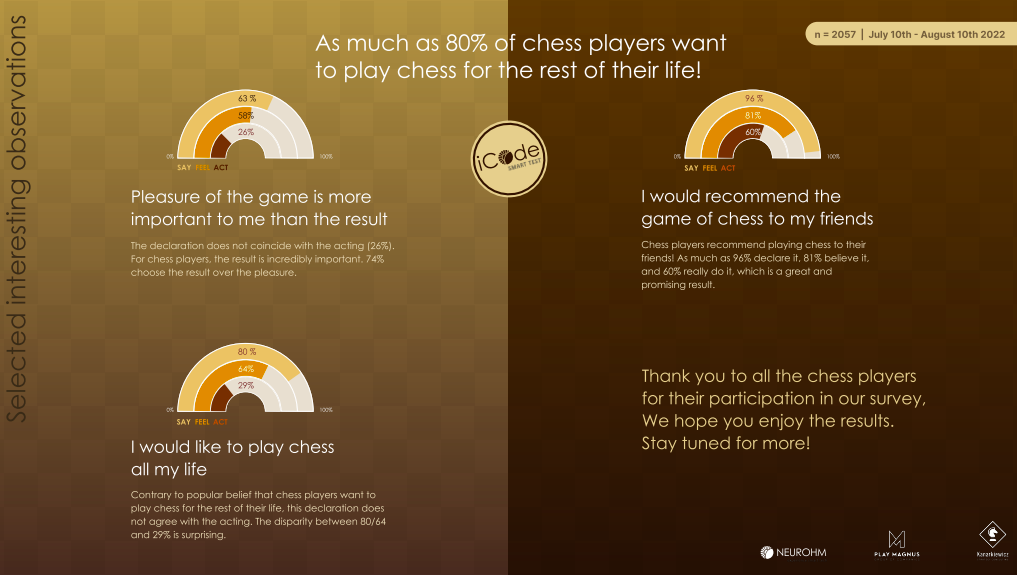On July 10th – August 10th 2022, NEUROHM, Michal Kanarkiewicz and PLAY MAGNUS GROUP conducted a chess survey, aimed at promoting the royal game and expanding knowledge about the group of people who play chess, both professionally and on amateur level. The results of the study show that as much as 80% of chess players want to play chess for the rest of their life!
The respondents were in different age groups, with different ELO Rating, from different countries and with different frequency of playing chess. The survey was not only a form of entertainment, since the participants could check their score at the end of the survey, but above all it showed us what groups we can divide players into and how we can adapt appropriate chess communication to them.
The test was conducted with a smart test based on the iCode algorithm. iCode™ is a unique research technology created by NEUROHM, a smart tech company. It analyses the speed & rhythm of clicks when answering an online-survey. iCode™ algorithms register how much people hesitate when they state their opinion. The more confident they are the more relevant something is for them or more likely it is they will do what they have promised.
iCode™ is based on neuroscience research called mental chronometry showing that strong connections between neurons lead to fast memory retrieval, while weak connections result in slow retrieval. Specifically it employs attitude accessibility phenomenon. iCode™ technology is a device agnostic digital solution, powered by machine learning calibration and neuro-AI engine.
iCode distinguishes three levels of response:
> SAY – cognitive conviction or SUPERFICIAL OPINION – percentage of diagnostic responses
> FEEL – emotional conviction or STRONG OPINION – standardized Confidence Index
> ACT– behavioral conviction or READINESS TO PROMOTE – percentage of highly confident diagnostic responses
Take a look at the report, where you will find some interesting results from the survey!
Results of the Neurohm, Kanarkiewicz and Play Magnus Group study
Text by: Michał Kanarkiewicz


